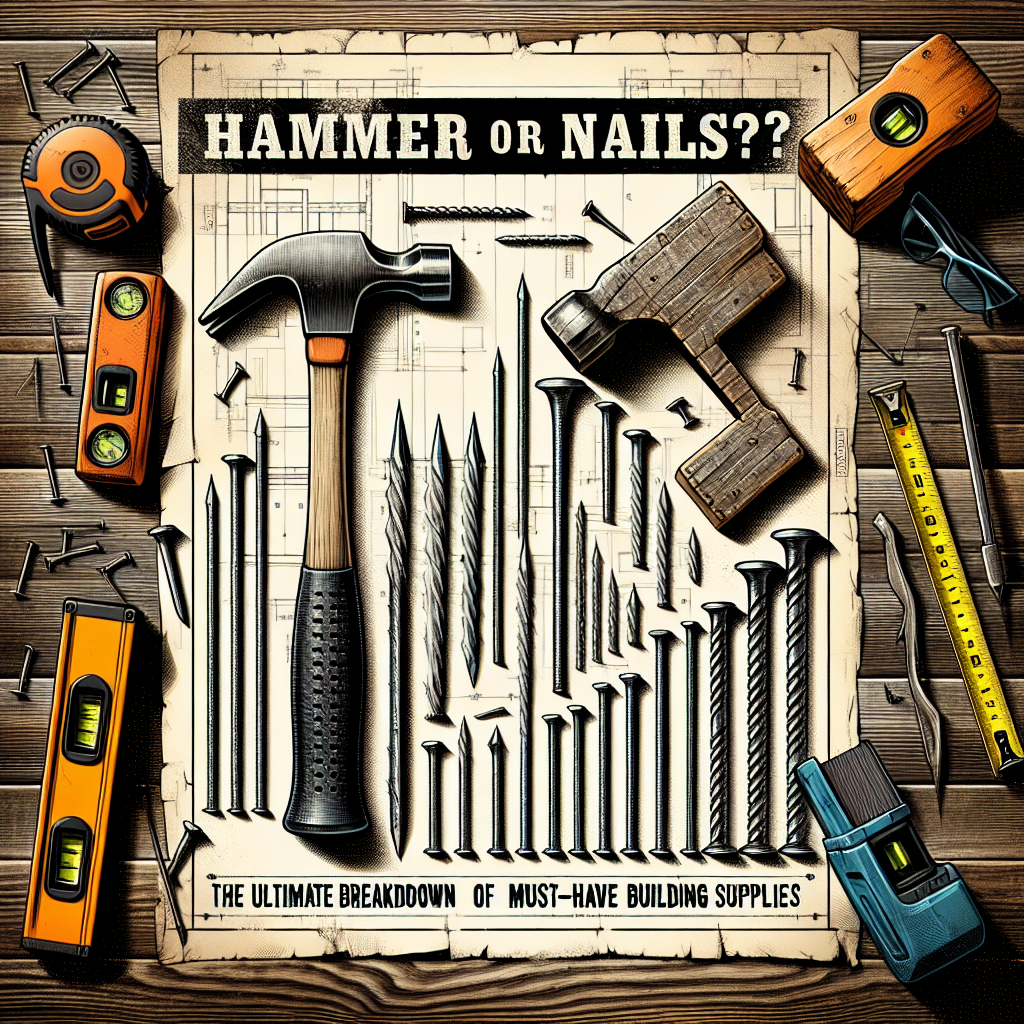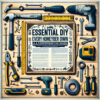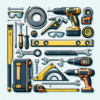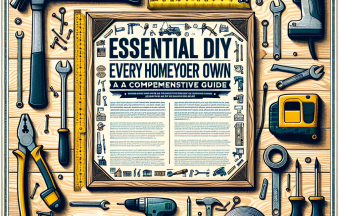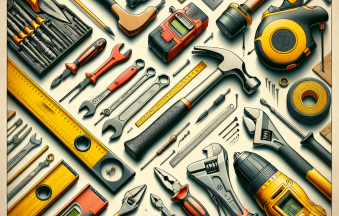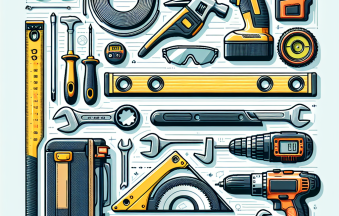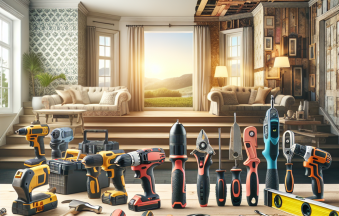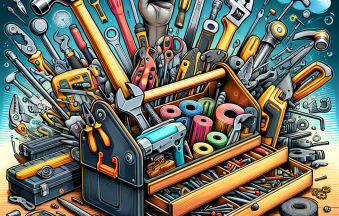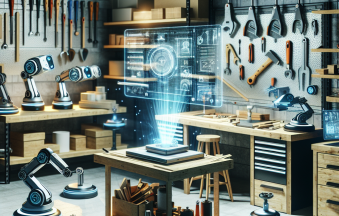When it comes to addressing home enhancement or repair tasks, possessing the appropriate DIY tools at your reach is vital. Whether you’re an experienced DIY aficionado or just beginning, understanding which tools to utilize can make the process simpler, quicker, and more enjoyable. In this handbook, we’ll examine crucial tools across various categories that every homeowner should take into consideration.
Home Tools
Investing in high-quality home tools can revolutionize your DIY journey. Consider acquiring necessary items like a dependable cordless drill and a multifunctional circular saw. A cordless drill is indispensable for boring holes and driving screws, while a circular saw enables smooth and accurate cuts in wood and other materials.
Do not underestimate the significance of safety gear as well! Equip yourself with items like safety glasses and gloves to safeguard yourself while engaging in projects. A durable workbench can also enhance your workflow, offering a stable platform for cutting and assembling materials.
Construction Materials
Every DIY endeavor starts with the appropriate construction materials. Ensure you possess a well-stocked assortment of lumber, plywood, and drywall. It’s beneficial to familiarize yourself with different wood types—such as pine, oak, or plywood—allowing you to select the best material for your tasks.
In addition to wood, don’t disregard essential adhesives and sealers. A strong construction adhesive can bond materials more effectively than screws alone, which is particularly advantageous in bathroom or kitchen enhancements. Furthermore, keep a range of fasteners such as screws and nails readily available to streamline assembly.
Electrical Gear
When your DIY task involves electrical work, safety should remain your top priority. Begin with tools like a voltage tester to confirm the circuit is safe for handling. A set of wire strippers and crimpers will be crucial for establishing connections, while electrical tape is vital for safeguarding exposed wires.
For more complex projects, think about investing in a multimeter. This tool enables you to gauge voltage, current, and resistance, providing a comprehensive understanding of your electrical systems.
Hardware & Fasteners
Hardware and fasteners serve as the backbone of many DIY ventures. Maintain a diverse selection of screws, anchors, nuts, and bolts in various sizes and styles. This array allows you to manage most endeavors without having to make a hurried trip to the hardware shop.
Also, don’t overlook picture hanging tools and brackets. These aids can assist you in showcasing your favorite art or shelving without harming the walls. Additionally, get acquainted with toggle bolts for heavier items to ensure secure installation.
Kitchen & Bathroom
Enhancing kitchen and bathroom fixtures can significantly elevate your home’s aesthetic appeal. Keep crucial plumbing tools on hand, including wrenches, pliers, and a pipe cutter. These instruments will support you in swapping out faucets, showerheads, or even installing new sinks.
Also, think about acquiring cabinet hardware tools. Installing new cabinet knobs and pulls can swiftly refresh your kitchen or bathroom without requiring a full renovation. As with any task, taking precise measurements is crucial to ensure everything fits and operates properly.
Bulbs & LEDs
Contemporary lighting can dramatically alter the atmosphere of a room. In terms of bulbs, LED options are energy-efficient and long-lasting. Consider incorporating smart bulbs that connect to your home network. These can be regulated via an app or voice commands, allowing you to create the ideal lighting for any mood or event.
Investing in a variety of bulb types—such as floodlights for recessed lighting, or dimmable options for living areas—ensures you have the perfect illumination for every need.
Illumination & Fans
Proper illumination is crucial for any DIY project. From ceiling fixtures to task lighting, having the appropriate lighting can enhance visibility and safety. Ceiling fans are also an important aspect, particularly for larger spaces. They assist in air circulation and can aid in lowering energy costs by enabling you to depend less on heat or air conditioning.
When installing lighting or ceiling fans, always adhere to the manufacturer’s guidelines and local building regulations to ensure everything is accomplished safely and correctly.
Measurement Tools
Precise measurements are the cornerstone of a successful DIY project. Invest in a trustworthy tape measure, and consider utilizing a laser distance measurer for larger areas. A level is also vital for confirming that shelves and pictures are positioned straight.
Think about including a carpenter’s square while working with wood; it assists in ensuring right angles, which is especially essential in construction and framing tasks.
Painting & Wall Supplies
Nothing revitalizes a space quite like a new coat of paint. Before starting, gather essential materials like brushes, rollers, drop cloths, and painter’s tape. Selecting the right paint—whether it’s latex for easy cleanup or oil-based for durability—can greatly influence the final outcome of your project.
If you’re aiming to introduce texture or patterns, consider specialty painting supplies, such as sponges or stencils, to achieve your desired design.
Depending on the extent of your project, your DIY toolbox will develop over time. The appropriate DIY tools not only enable more successful projects but also make them safer and more enjoyable. Equip yourself with the essentials, and you’ll be prepared to tackle any task that arises!

